 Multe se pot scrie despre scarboseniile facute de Alina Tatiana Mungiu Pippidi impotriva romanilor. Dar ceea ce am gasit si reproduc mai jos cred ca depaseste toate dejectiile frustratei congenitale aruncate pana acum asupra Romaniei si presei libere dar in special asupra celor mai curajosi jurnalisti ai anului 1999. Printre cei – nu multi, doar trei-patru – care si-au riscat vietile, timp de mai bine de o luna, sub bombardamentele NATO asupra civililor din capitala europeana Belgrad, s-a aflat si fratele nostru Mile Carpenisan. Public mai jos, integral, forma de denunt calomnios a corespondentilor de razboi romani, batjocoriti si ridiculizati in bloc cu teoriile conspiratiei impotriva Serbiei si Romaniei, chiar intr-un mediu academic american – New York University. Eu zic asa: sa-i dea Dumnezeu exact dupa sufletul ei. Daca il mai are.
Multe se pot scrie despre scarboseniile facute de Alina Tatiana Mungiu Pippidi impotriva romanilor. Dar ceea ce am gasit si reproduc mai jos cred ca depaseste toate dejectiile frustratei congenitale aruncate pana acum asupra Romaniei si presei libere dar in special asupra celor mai curajosi jurnalisti ai anului 1999. Printre cei – nu multi, doar trei-patru – care si-au riscat vietile, timp de mai bine de o luna, sub bombardamentele NATO asupra civililor din capitala europeana Belgrad, s-a aflat si fratele nostru Mile Carpenisan. Public mai jos, integral, forma de denunt calomnios a corespondentilor de razboi romani, batjocoriti si ridiculizati in bloc cu teoriile conspiratiei impotriva Serbiei si Romaniei, chiar intr-un mediu academic american – New York University. Eu zic asa: sa-i dea Dumnezeu exact dupa sufletul ei. Daca il mai are.
Feature: Romanian elites identify more with the Serbs while public opinion is divided
Eastern Europe After Kosovo
The War That Never Was
Alina Mungiu-Pippidi
(* Pentru traducerea bloc a textului apasati aici: Google Translate)
In case you missed it, you still have a chance to learn the truth about NATO’s vicious aggression against Yugoslavia. By 1991, the plan to conquer the Balkans and deliver a mortal blow to the concept of sovereignty was already prepared. This was the final stage of a cold war that would not be complete until the enemy was entirely crushed. By 1992, the logistics were in place, and by 1993 funding was also found. It was then only a matter of seizing on the right moment. It could not take place in winter (American soldiers might catch cold) so it was planned for the spring of 1999.
Meanwhile, Kosovo was known to be a prosperous region because it was a part of Yugoslavia. So prosperous was Kosovo that poorer Albanians from Albania poured in to settle there in massive numbers until they formed a majority.
Why was the West so intent on destroying poor Yugoslavia? Many answers compete here. For one thing, it fit in with the West’s true strategic concept (although deliberately omitted from NATO’s new or public strategic concept) desovereignty. This may not be Shakespearean English, but the term has a clear meaning: the occult international conspiracy, whose strong, visible arm is NATO, decided that no state’s sovereignty is inviolable so the alliance is free to intervene wherever the momentary interests of the conspiracy demand that it do so.
But NATO had other interests as well, since Jewish international finance was pulling the strings. NATO did not want oil from Central Asia to transit the Balkans and enrich the region while Israel was losing money. The US wanted to improve relations with Arab states upset over its unwavering support for Israel, so it backed the secession of a small Islamic region in the Balkans. Russia, in its turn, pursued only its own interests and was practically selling the Serbs for IMF money. Furthermore, they wanted oil to transit Russia and not the Balkans, so they were certain not to start the third world war, as they should have, to defend Yugoslavia from the barbaric West. And there was also Bill Clinton’s persistent need to divert the world’s attention from Monica. If Clinton had agreed to the perfect peace plan set up by Ibrahim Rugova and Milosevic, the focus again would have been on him.
You may find that the war pictured here has little to do with reality.
If so, you should question the basis of your own knowledge, which is mostly informed by the CIA’s propaganda department, including CNN, Euronews, the wire agencies, the broadcasting companies, and so on, the list is endless. And if you find this description of the Kosovo crisis absurd, please do not blame me. This is simply the account that Romanians read daily if, like most people, they read the domestic and not the foreign press.
I compiled the foregoing account from Romanian newspapers as varied as Dimineata (the newspaper of former president Ion Iliescu’s Party of Social Democracy), Adevarul (the largest Romanian daily and the former newspaper of the Communist Party, now private), Cotidianul (independent, shared British and Romanian ownership), Jurnalul National (private, independent), and Ziua (private, independent). Luckily, the same news consumers also regularly watch television. On both public and private stations, Romanians could also see footage of refugees (transmitted by Western news agencies) and more factual reporting based on Reuters or APTV. But then, watchers were treated to the journalists (also in many cases the publishers) of the above-mentioned newspapers airing their views on the television news programs. These opinion leaders are all credible, middle-aged people who began their journalistic careers under communism and who, due to their talent for marketing or the laundering of Ceausescu’s secret-police money, came to enjoy a near monopoly on opinion making, both in the print media and on television. So, if the public misses the point in the Western media, they will not go unenlightened. Romanian journalists were there to sell their theories, to explain that the Western press exaggerated the concerns of the refugees while ignoring the suffering of the Serbian people, and that the offensive was the first step toward a conquest of the BalkansÑnext in line would be Romania, with Transylvania offered up to the Hungarians, and so forth. Every night, on practically every channel, they expressed their indignant solidarity with Milosevic and the Serbian people. They were pitted against a few Western-oriented analysts whom they pictured as either agents of President Emil Constantinescu or in the pockets of Western organizations (usually the Soros Foundation).
The war that never was is not such a novelty with the Romanian press. In 1991, one could read the same conspiracy theories about the Romanian revolution, which was, after all, a war between Romanians and Hungarians. Ceausescu was snared in a plot masterminded and executed by the CIA, the KGB, the Mossad, and others, in a dazzling display of cooperation across ideological and ethnic borders. What was different about Kosovo was the expansion of this paranoid discourse. While only two national-communist newspapers propagated conspiracy theories in 1991, nearly the entire press was onboard in 1999.
The concentration of the press in the hands of a few former communist journalists and a general tabloidization provide the most immediate explanations for this change. One notable example can be found in the work of Ion Cristoiu, the apparent mogul of the Romanian press. In 1992, Cristoiu, a former communist journalist, launched a new sort of daily, Evenimentul Zilei, the first Romanian tabloid. Evenimentul ran real and fictitious articles, none longer than 300 words. The newspaper carried statements by death-penalty supporters, articles on hens giving birth to live chickens, and, eventually, features defending CeausescuÕs Securitate. Evenimentul’s circulation rocketed to a record 600,000 in its first year. Although its high circulation was transitory, its influence on the Romanian press was not. In an effort to boost their circulation, almost all the dailies took to copying Evenimentul. After years of negotiations, the paper was bought by Bertelsmann, in 1998, and Cristoiu was eventually pushed out by his partners. Evenimentul’s circulation fell below 200,000, but the presses of Romania have acquired a style that makes it impossible to differentiate between the newspapers and the tabloids.
Now as the head of a smaller daily, Cotidianul, and with a constant presence on television, Cristoiu has embarked on a mad and often surreal anti-Western adventure. Unlike others, he covered Kosovo almost daily. The titles of his articles were telling: The Delirium of History Strikes the European Social-Democrats, Unfortunately the Serbs will be Defeated, Why do the Romanians Side with the Serbs? The Western Press-the Pravda of NATO, Humanitarian Protection: An Excuse to Invade Serbia by NATO?Ó ÒWestern Television is also Part of the NATO Troops, The Rugova Peace Plan was Concocted by NATO, If Serbia Did Not Exist It Would Have to be Invented, and so on.
In language that cannot be repeated, Cristoiu attacked all those supporting the intervention in Kosovo, ranging from President Constantinescu to the independent intellectual Gabriel Liiceanu, labeling the latter a mutant for his pro-Western stance. Cristoiu outdid himself when he went to Belgrade to spend the night with some Romanian reporters on the roof of a hotel. Cristoiu was lyrical when describing “the brotherhood of the Romanian journalists, united in their love for Belgrade, capital of my heart, and siding with the Serbian antiaircraft artillery as it tried to protect a European capital threatened by the fangs of the strongest military alliance in the world.”
The interesting part of Cristoiu’s story concerns the television reporters he praised for not obeying the pro-NATO line of their bosses in Bucharest, thus risking being recalled. The public-radio station indeed did recall its correspondent. The American-owned private television station, by contrast, kept their correspondent, who Cristoiu said was fighting to tell the truth, not the lies that the Romanian government wanted to hear. This shows that even broadcasters have problems in maintaining a neutral line and not giving into the furious pro-Serbian offensive of the print press. Indeed, the print media presented the Serbs as a proud people who defended three empires, and who want to die on their feet not on their knees. Albanians, by contrast, were presented either as terrorists (the KLA) or were given no coverage. Threatened by his publisher, Cristoiu defended this position, arguing that the refugees stories should not be reported because they were Òone-sided.
With the war in Kosovo, the Romanian press reverted to stereotypes from communist times, thinking, for example, only in terms of unified institutional actors (NATO, Russia, and Serbia), not of various people with mixed and conflicting motives. Compassion was only for the Serbs; not so much for their suffering as for their courage in opposing the new world order. Journalists and publishers conceived the world on the model of a totalitarian society (the Western press is controlled by a unique powerful publisher), thereby displaying a total ignorance of national or ownership diversity. And, of course, they strongly insisted on conspiracies: the anti-Western press claimed that the war was a plot to conquer the Balkans, while the smaller pro-Western anticommunist press claimed that Milosevic had instigated the minersÕ riots in Bucharest last January in a plot to bring Romania in line with Russia and Belgrade.
Although cheap sensationalism and a lack of professionalism are responsible for most of this sort of coverage, the press’s behavior should not be regarded lightly. The important thing is that all columnists, with a few exceptions, display similar attitudes. Their homogeneous political attitude, which is anti-Western, favors a strong, authoritarian state and is spiteful toward minorities or groups with different thinking. This attitude is not shared by the majority of Romanians. Polls show no sign of it. It is the attitude of the elites.
Ten years after the Romanian revolution, journalists have begun to write that Romania lost the Cold War. In 1990, the general line was that Romania had benefited from the Soviet Union’s defeat. Except for the few pro-Western intellectuals and President Constantinescu, the Romanian intellectual elite found in the Kosovo crisis an opportunity to express its long-pent-up, anti-Western frustration. Strangely enough, intellectuals are among the principal losers of the transition. The privileges granted to writers by the communist regime are gone, and the innumerable technical institutes created by Ceausescu are bankrupt. The best young people have left the country either to study abroad or to work for Western companies. The rest feel rejected and betrayed by the West, are scared by the new political correctness, and long to be accepted as they are, as nationalists, as racists, as macho. They have discovered with surprise and anger that the West has become feminine. Two of the most famous opinion leaders, veteran Octavian Paler and his younger ally, Cristian Tudor Popescu, had already announced their credo in past articles denouncing the US. Paler, who does not speak English, and Popescu, who spent a month in New York without meeting anyone, gave a picture of a decadent society dedicated to the homeless and handicapped and tolerant toward unacceptable perversions (homosexuality and interracial marriages). In short, they tell of a society that has become too human for their macho tastes.
Popescu and Paler were chosen by PROTV to comment on a BBC documentary on Kosovo. What could have been an occasion for the Romanian public to see an unbiased documentary was thus spoiled as the two embarked on fantastic historical interpretations and sharp criticism of the BBC’s coverage. After appearing on a talk show directed against Popescu, pro-Western Gabriel Liiceanu was criticized by most of the press.
Intellectuals strongly identify with the nationalist communists in Belgrade: their pasts and values are similar. After all, they are products of the same school of thought. This common nationalist and communist background is more important than Orthodox Christian solidarity. Romanians, by and large, are conformists when it comes to religion. Orthodoxy, however, is part of a larger complex that they share vis-a-vis the West. They have the impression that the West despises them because they are Orthodox. Samuel Huntington’s theory, which noted a low correlation between Orthodoxy and democracy, was the object of furious press articles in all the Orthodox countries. Gaspar Miklos Tamas, a Romanian-born Hungarian philosopher, coined a phrase for this attitude: Òradical provincialism. (Tamas provides a brilliant description of this syndrome in his article Ethno-Anarchy and Ethno-Anarchists, in the Spring 1996 issue of Social Research.) If Kosovo did not exist, it would have to be invented, proclaimed one Romanian newspaper (in order to save NATO, it implies). This is also true when we look at Kosovo as a catalyst for the frustration felt by the Romanian elite toward the West and Western standards.
Politicians, on the other hand, have their own fears. The most prominent is the possible identification of Transylvania with Kosovo. This fear seems exaggerated, since Hungarian Romanians hold seats in the government and constitute most of the civil servants in the Hungarian-dominated areas in Transylvania. But Romanian sensitivity toward Transylvania remains a major political factor. At a recent meeting of the Democratic Alliance of Hungarians in Romania (DAHR), a resolution to send a letter to Bill Clinton failed only by a few votes. DAHRÕs nationalist wing wanted to tell the American president that he had made a mistake when he recently said that the Hungarians in Romania are one example of a happy resolution of an ethnic conflict in a democracy. The moderates prevented this action, but in a speech in parliament, the moderate party president, Marko Bela, compared Transylvania with Kosovo, fueling nationalist rhetoric.
Romanian parliamentary deputies were offended by the complaints of the Hungarian nationalists that (even after the inclusion of DAHR in the government in 1996) a cultural genocide of Hungarians was occurring in Transylvania. The deputies fear that NATO will some day bomb Romania just because Romanians prefer to have Hungarian professors in a multicultural university rather than establish all-Hungarian universities. The former defense minister, Gheorghe Tinca, attacked the government in Bucharest, warning that, with the Kosovo precedent, NATO could compel the Romanian government to accept a possible declaration of self-government by the two Transylvanian counties with Hungarian majorities. Although Hungarians make up less than a third of the Transylvanian population, the trend toward self-government, which seeks separation rather than a consociative solution within the national government, is quite strong within DAHR. The Hungarian topic has been an unfortunate but constant theme of Romanian political life in the past ten years.
Parliament, unlike the media, is aware of Romania’s delicate position. Rejected by both NATO and the EU, Romania now faces major economic problems. Moreover, of the former eastern bloc, it carries the inherited weight of perhaps the deepest societal penetration by totalitarianism and has suffered one of the most painful transitions. After first declaring it would vote against the NATO request to use Romanian airspace, the former government party headed by Ion Iliescu preferred to abstain from voting. Still, Iliescu did express his opinion on the matter in an address to a group of peasants, in Baragan. He likened Milosevic’s treatment of Kosovo to a man beating his wife and accused NATO of intervening needlessly, saying and here comes one [NATO] who says heÕs a democrat and knocks the man down. In any case, pushed by President Constantinescu, MPs of the majority also understood that, since Romania needed the West, it could ill afford to take an independent stand on this issue. As head of the Supreme Defense Council, Constantinescu granted authorization for NATO planes to fly over Romania. He then asked for parliament’s approval in a letter. Parliament moderated his terms, but granted unrestricted access during the conflict.
After the bill passed, with 225 votes in favor, 21 against, and 99 abstentions, a war over terms erupted. Defense Minister Victor Babiuc claimed the parliament also had approved NATO’s use of Romanian airports, although the press and the postcommunist opposition claimed the word survol covered only air passage not landings. Constantinescu backed his defense minister, but other members of the government, largely in order to please the press, defended the more restrictive variant. Foreign Minister Andrei Plesu, an outspoken pro-Western intellectual, also provoked controversy, claiming quite early in the conflict that the partition of Kosovo was the only foreseeable solution.
Another war was fought over the interpretation of public opinion, a favorite game in Bucharest’s politically charged climate. Two polls published in April and early May showed a relative decline in public support for NATO integration. The press rushed to interpret this as proof that the public was against the NATO action in Kosovo. But the poll that revealed the most significant decrease, as “CURS poll” had already shown that trend last December. The drop from 90 percent support for NATO integration in February 1997 to 60 percent this spring (67 percent, in December 1998) is explained both by the dissipation of the urgency many felt in 1997 and the worsening social and economic situation now. A full 75 percent of Romanians disapproved of the bombing of Serbia, but instead of concluding that this indicated solidarity with the Serbs, the Romanian press should have examined the more tangible and immediate explanations. For instance, since 1991, the main fear that Romanians expressed in all the polls has been a possible war on the borders. This fear raised its head with the war between Serbia and Croatia and only intensified this year when bombs fell near the Romanian frontier, and the Danube flowed with oil from bombed refineries in Serbia. Romanian and Bulgarian losses from the interruption of shipping traffic on the Danube are a terrible burden on their already impoverished economies. Many companies in Romania were also hit by the embargo, and thousands of workers reportedly went unpaid after production in their enterprises was delayed because of the embargo. Romanians could not but hope for a peaceful solution in the Balkans.
Those who blame Milosevic for the war are roughly as numerous as those blaming NATO. Given the media’s bias, it is surprising that public opinion is so evenly balanced. Cristoiu may be right when he attributes the decline in President Constantinescu’s popularity to Kosovo, although interpretations can be more nuanced on this issue as well. Constantinescu cannot fully rely on any political party, and the press has recently played on the opposition between him and his fellow Christian Democrat, Prime Minister Radu Vasile. Restricted by a constitution that grants him less power than, for instance, the French president, Constantinescu had to push intensely for passage of the Kosovo resolution and was often forced to become the main lobbyist in a parliament rarely concerned with anything other than what affects the interests of the political class itself. Isolated as a political figure and often attacked by the press, he is increasingly perceived as powerless and ineffective. Romanians like strong leaders. Constantinescu’s failure to be one, despite occasional attempts, and the rather bad timing of some of his speeches, have led to a serious decline in his popularity. Though no real challenger is in sight for the moment, should Constan- tinescu lose next year’s election, his successor will not dare to be so outspokenly pro-Western.
Beyond the violent and vulgar way the press covered the subject, Kosovo raises serious questions about Romania’s place between the East and the West. Three-fifths of Romanians favor Romania’s integration with the West. Less than a third believe Romania should look for an original path of its own between the East and the West (poll by the Romanian Public Television Polling Center, July 1998). The East option has almost no adherents, and Russia continues to be seen as the major threat, while NATO, even after the bombing, does not (poll by CURS, April 1999). But public opinion may shift with time, if the West does not move toward a more formal inclusion of Romania. The isolation of Romania over the last ten years must cease if the West hopes to help pro-Western leaders, such as Constantinescu, mobilize public opinion in their favor and against national communism. Providing pro-Western leaders with next to no incentives to offer their voters and leaving them alone to fight strong nationalist and communist networks, such as the Romanian press, will undoubtedly lead to their defeat and to a setback for pro-Western elites in the future. Ending the war without removing Milosevic, moreover, will only add more wind to the sails of the nationalists in the region. The battle over Kosovo is only one episode of a broader war being fought in Eastern Europe between old communist elites turned nationalists and the newcomers, that is, the emerging pro-Western elites. Failure by the West to recognize what is really unfolding in Eastern Europe may make liberal democracy itself one of the principal casualties of the Kosovo war.
****
Alina Mungiu-Pippidi holds a Ph.D. in political psychology. She heads a think tank in Bucharest, the Romanian Academic Society, and is currently a Shorenstein Fellow at Harvard University. She is the author of Die Rumnen nach 89 (Intergraph Verlag, 1997), a study of value and attitudes in postcommunist Romania.
Volume 8 Number 3
Summer 1999
A Quarterly Published by New York University Law School and Central European University
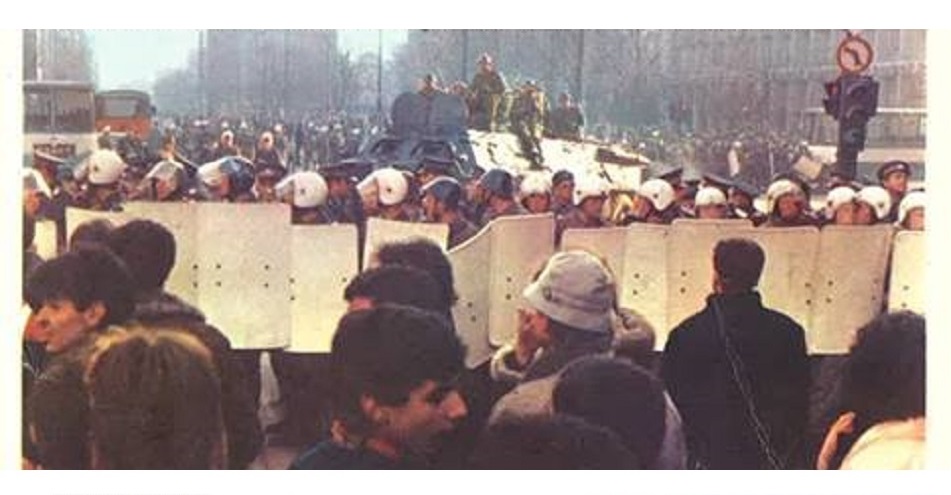
 March 24th, 2010
March 24th, 2010  VR
VR 
 Posted in
Posted in  Tags:
Tags: 






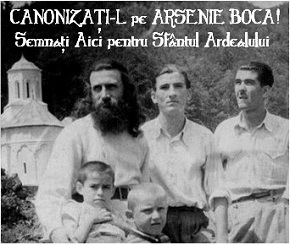


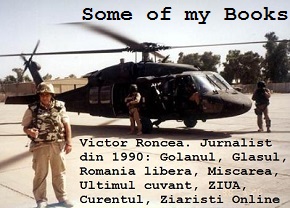
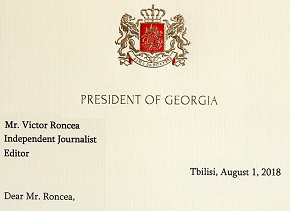

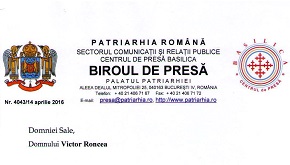



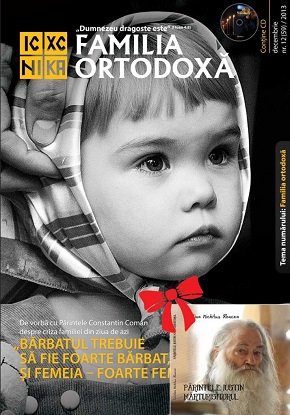




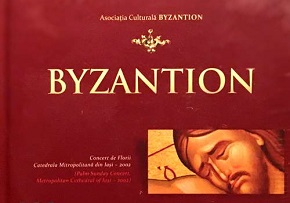













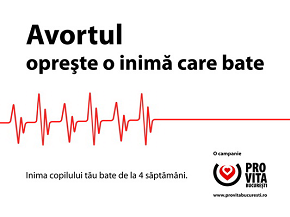
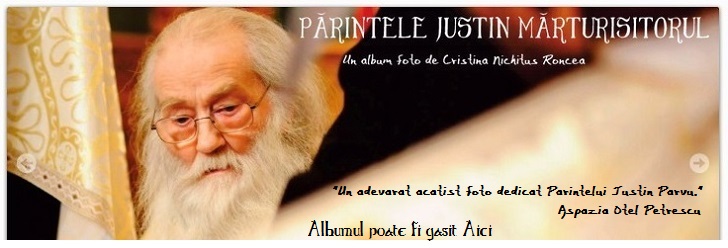
Este de ajuns pentru oricine cu un IQ medicocru sa citeasca biografia si articolele acestei “progresiste” ca sa-si dea seama ca ea nu este nimic mai mult decat un suflet pierdut….Agent al unor forte oculte, fara Dumnezeu si serios dereglata!
ce scroafa, domne!
Porcul, pardon, scroafa, tot scroafa!
In alte vremuri se faceau plingeri la “Poarta Otomana”,rusi sau “cancelariile europene “…Au si TRADATORII DUMNEZEUL LOR.CARE VEDE SI SCRIE,SI NOTEAZA, SI BIFEAZA SI LA URMA…
Pentru toti tradatorii de neam si vanzatorii de tara (pentru multi dintre ei, o tara adoptiva – dat fiind ca sunt cam venetici),
o dedicatie din partea lui Mihai Eminescu (pe care l-au improscat, de asemenea, cu noroi.. dar… nu mor caii cand vor cainii!!):
“Cine-au îndrăgit străinii
Mânca-i-ar inima cânii,
Mânca-i-ar casa pustia
Si neamul nemernicia.
Stefane, Maria Ta,
Tu la Putna nu mai sta,
Las’ Arhimandritului
Toata grija schitului,
Lasa grija Sfintilor
In sama părintilor,
Clopotele să le tragă
Ziua ’ntreagă, noaptea ’ntreagă,
Doar s’a ’ndura Dumnezeu
Ca să-ti mântui neamul tău!
Tu te ’nalta din mormânt
Sa te-aud din corn sunând
Si Moldova adunând.
De-i suna din corn odată,
Ai s’aduni Moldova toată,
De-i suna de două ori
Iti vin codri ’n ajutor,
De-i suna a treia oară
Toti dusmanii or sa piară
Din hotară în hotară,
Indrăgi-i-ar ciorile
Si spânzurătorile!”
….
“Stefane, Măria Ta,
Lasa Putna, nu mai sta,
Ca te-asteapta litvele
Sa le sboare titvele
Sa le spui molitvele
Pe câti pari pe câti fustei
Căpătini de grecotei
Grecoteii si străinii
Mânca-le-ar inima cânii,
Mânca-le-ar tara pustia
Si neamul nemernicia
Cum te pradă cum te sacă,
Săracă tară, săracă.”
Amin! Dumnezeu sa-l ierte pe Mile!
Cheia intelegerii personajului Mungiu-Pippidi: “cum facem sa provocam cat mai multa suferinta majoritatii”. In situatia noastra majoritatii romanestii.
Observati:
– sprijina segregarea ungurilor, dar integrarea tiganilor
– deplange nationalismul dar nu si comunismul sau capitalismul
– combate ortodoxia in fata catolicismului, crestinismul in fata mahomedanismului sau budhismului
– cere conducatori pro-“occidentali”, dar dupa ea a fi pro-occidental inseamna sa sustii bombardarea unei capitale europene in apararea unei mafii musulmane extrem de prolifice in materie de trafic de droguri, persoane, armament, organe
– interesele legitime ale populatiei romanesti in Ardeal sunt “sensibilitati romanesti”
– interesele ilegitime ale colonistilor si deznationalizatilor sunt drepturile milenare ale maghiarilor
– anti-imperialismul, dorinta de libertate nationala devin “radicalism provincial”
Daca i se poate aduce o acuza majora “national-comunistului” Nicolae Ceausescu e ca a permis aparitia unor astfel de neo-comunisti ca sa zicem asa post-marxisti.
Chiar poate fi luat in serios personajul? Uitati-va va rog la poza.
dincolo de interesele economice exista poporul roman cu traditiile si valorile sale pe care nimeni nu le poate contensta caci valoarea populara este cu mult mai presus decat oricare alta….ori noi romanii cat si popoarele cu care ne invecinam am prins radacini si vom fi vesnic inradacinati in aceste meleaguri balcano pontice….. sa nu uitam niciodata cine suntem ptr ca asta o sa insemne pieirea noastra ca natie…… fiecare dintre noi avem datoria sa ne educam urmasii in spiritul valorilor traditiilor obiceiurilor stramosesti si nu in spiritul celor imprumutate din occident caci fara sa realizam ne vom departa cu pasi repezi de Dumnezeu cel care ne a creat ,,Romani,,ortodocsi crestini.
mai ziceam…. ca adevaratul intelectual,,elitist,,este acela care in vartejul vremurilor sale are curajul sa spuna ,,DA,,binelui si adevarului si,,NU,,actiunilor economico politice, potrivnice atat natiei sale cat si umanitatii……si chiar daca pe moment n a reusit nimic cu siguranta a marcat primul moment al schimbarii
cat despre MADAMELE PROGRESISTE cu parere de rau pot spune ca nu vor progresa niciodata atata timp cat lumea din jurul dumnealor este o indepartata strainatate…..in plus….se pare ca pe alocuri ,,prostia este direct proportionala cu uratenia,,
Aceasta vacutza idioata cu scrierile ei de doi lei, indrazneste sa-si spuna propriile pareri, dupa mintea dumisale bolnava, la New York Times si idiotii aia de la NY Times le publica:)) Doamna Pippidi ne spuneti si noua pe cine lingeti in cur din America? Eu sint in America, acasa ca mi-ar face placere sa ma lingeti si pe mine o leak:))
Va rog sa ma contactati:)
Alina nu-i frumoasa ( cu certitudie!), dar e proasta de bubuie (cu siguranta!)!
jigodia asta basista imputita ca si macovei procuror comunist au vindut tara serviciilor americane
sa intelegem ca nu este altceva decat o frustrata si o handicapata?
domnilor, o multime dintre cei care citesc si comenteaza articole au ridicat-o in slavi pe aceasta ipochimena, drept pentru care ma faceti sa fiu stupefiat. acum o criticati? am fost criticat si injurat ca m-am legat de aceasta adevarata miss piggy a presei romanesti. vai ce ati mai luat-o la roata cand s-a luat de eba!
stabiliti-va prioritatile, faceti-va un plan de bataie, mai ganditi-va o data daca chiar vreti sa faceti asta si apoi actionati, dar cat mai ferm si cat mai constant. dar, inca o data mai analizati!
aceasta pupincurista si oportunista are foarte mult tupeu si este complet lipsita de orice fel de rusine.
americane? ne faceti sa radem! 🙂